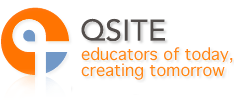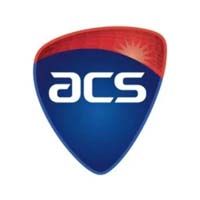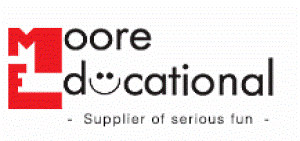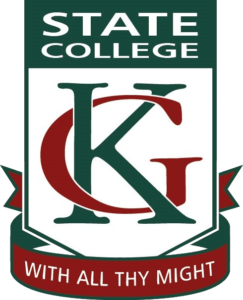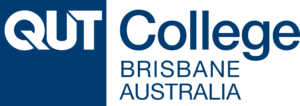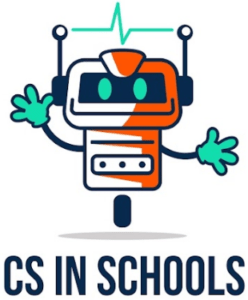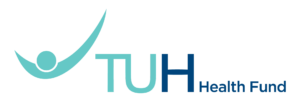QSITE State Conference is an annual QSITE event that connects and supports educators, institutions and their stakeholders so they may fully explore the opportunities Digital Technologies bring to education and classrooms every day.

CreativITy 2022 – Gateways to the Future 2022 PROGRAM
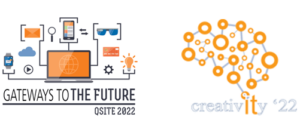
CreativITy 2022 – Gateways to the Future
QSITE State Conference 2022 Program
19th and 20th September 2022
Registration from 7.30 am for an 8.30 am start
Tea/Coffee – BYO hot/cold drinking cup to help reduce the environmental impact.
With thanks to the following sponsors
With thanks to the Trade Exhibitors
Little Sun

Day 1
8:30 move to Hall
8:40am – 8:55am
Acknowledgement of Country, Conference welcome and Housekeeping
Hall
Conference Opening
9:00am – 10:00am
Keynote – AFP On Line Child Safety Team
ThinkUK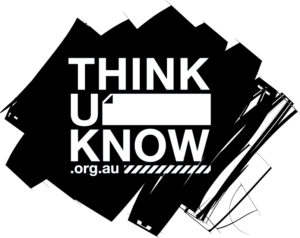 now is a program led by the Australian Federal Police (AFP), delivered nationally to educate the community about preventing online child sexual exploitation. The program addresses topics including online grooming, preventing inappropriate contact, sexting/self-generated content, sexual extortion, and importantly, how and when to seek help.
now is a program led by the Australian Federal Police (AFP), delivered nationally to educate the community about preventing online child sexual exploitation. The program addresses topics including online grooming, preventing inappropriate contact, sexting/self-generated content, sexual extortion, and importantly, how and when to seek help.
ThinkUKnow is unique through the development of real case studies as a result of reports of child exploitation through the Australian Centre to Counter Child Exploitation, to assist in educating Australian parents, carers, teachers and students about safety challenges.
AFP members will share information for teachers, educators and those working with children and young people about the online safety challenges they may face, how these can be overcome and the importance of reporting and supporting.
Hall
Keynote
10:00am – 10:30am
Zenva Schools – Pablo Farias


Date#3 – David Wain
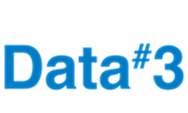
Hall
Keynote
10:30am – 11:00am
Morning Tea & Trade Show
eSports Student Showcase
Hall
All day
Make sure you visit the exhibitors and discover their products and resources.
Hall
11:00am – 1:00pm
Robotics programming using Python
In this hands-on workshop, using the Micromelon Rover, we will guide you through a series of engaging and real-world activities and challenges that you can immediately incorporate into your robotics lessons or after school club, some without even using robots. You’ll be able to code along without a robot using the Micromelon Robot Simulator, Blockly and/or Python to program a virtual robot of your own.
Along the way, we will share how each activity can be modified and extended to cater to students of all levels in your classroom.
By the end of the session you will:
- Be able to incorporate virtual and simulated robotics into your STEM and Robotics lessons.
- Be able to use the Micromelon IDE to write programs for both real and simulated Rovers.
- Understand and have practical experience coding using blocks and Python.
- Be able to confidently guide students through a number of workshops and activities from our online library of resources.
- Have insights on how each activity can be structured to meet the needs of all of your students.
Provided by ACS ICT Gateway To Industry Schools Program.
Participant requirements – laptop preferred
Tim Hadwen and Adam Stacey – Micromelon
Bio: Tim Hadwen – Tim’s background is in electronics design, both for startups and as a researcher with the CSIRO. Since co-founding Micromelon, Tim has been the lead hardware engineer developing the Micromelon Rover as well as 3D printed attachments and resources go alongside the Micromelon Platform in schools. Tim also facilitates many of Micromelon’s student workshops as well as adult robotics sessions and networking events.
Bio: Adam Stacey – Adam’s background includes being a computer vision researcher and mentoring several honors software engineering students in their final year. Since co-founding Micromelon, Adam has worked as the lead software engineer developing the Micromelon Code Editor & Robot Simulator. When not adding new features to the Simulator, Adam spends time in schools mentoring students who want to pursue a career in software engineering.
Workshop A
Library
DT-7-10
11:00am – 12:00pm
Virtual Reality for Education with curriculum aligned content
The Virtual Reality Learning and Design Hub by Education Queensland develops immersive curriculum aligned content for students in years 7 to 12. The immersive pedagogy model allows students to discover, explore, inquire and problem solve to receive an exceptional learning outcome. The Data#3 VR classroom solution is a turn-key, physical VR space for students to interact with the learning content while maintaining world–class safety standards. Attend this session to see a live demonstration of the VR solution including curriculum aligned content created by Educators for Educators.

Ebony O’Connell – Data#3
Bio: Ebony is a HP Technology Specialist for Data#3 focussed on Virtual Reality and End User Computing solutions for the Queensland Education Sector.
David Wain – Data#3
Bio: David leads the National Education Practice at Data#3 and has over 25 years of experience in the ICT and Education Sectors. He works with Schools, Universities and Education Departments to deliver technology solutions that have a positive impact on teaching and learning.
Workshop B
Library
DT-7-10, DS-ICT, P-VET-IP
11:00am – 1:00pm
Getting started with Artificial Intelligence
The workshop provides a hands-on introduction to artificial intelligence and machine learning. Participants obtain an introductory level understanding of AI and can recreate the activities in a classroom with students.
The workshop includes case studies and lesson plans showcasing existing practice, and school-wide scope & sequence, incorporating educational AI resources,
hands-on experiences with classroom-ready resources that target the Digital Technologies curriculum and other curriculum areas.
Workshop format:
– What is machine learning?
– How do machines learn?
– Emoji recognition
– Self-driving cars
– Anti-bullying AI
– Analysing Science experiment data with AI: Ai Science Lab
– Social and ethical issues
Participant requirements: Laptop. Participants are asked to create a free teacher account on https://mycomputerbrain.net
Karsten Schulz, Digital Technologies Institute
Bio: Karsten Schulz is an engineer, scientist, and educator.
He holds a PhD in Computer Science and a Bachelor in Electrical Engineering with a focus on Software Engineering. In 2010, Karsten created the Young ICT Explorers Competition and, in 2014, whilst working for NICTA, he founded the Bebras Australia Computational Thinking Challenge, which is part of the International Bebras Challenge.
Karsten has been working in the Australian ICT and Digital Technologies space since 1999 in an international R&D leadership position. He has designed various DT courses, a computer processor, and builds artificial neural networks.
Workshop C
Library
DT-P-6, DT-7-10
11:00am – 1:00pm
Esports – Creating an esports curriculum plan
Join us for a look at esports as a curriculum and how to include it in your Digital Technologies curriculum. Possibly even “live the dream” to have it as a stand-alone subject! This workshop will give you a hands on look at how to take the achievement standards from the Technologies (Digital Technologies) Australian Curriculum Yr 5 – 10, and turn it into a functional unit of engaging curriculum. By the end of the workshop, participants will have shared their working knowledge of DT and Esports and have produced a resource for all who attend. To cap off the experience we will have a go at some in-class engagement strategies and compete in a growth mindset esports competition and dabble in some video editing using Adobe Premier Rush.
Participant requirements: Laptop, wifi access, Adobe Premier Rush and a growth mindset
M J Raatz
Bio: MJ Raatz would describe himself as a fun, innovative and a Life-Long-Learner. He commenced his teaching in 2000 with a very special project at Ipswich State High School. MJ has had the pleasure of being a member of the QSITE board, and a BEAQ Fellow. He lecturing at University of Queensland since 2011 in Digital Technologies. In 2018 he was thrown into the esports world and has learnt a lot since then, especially keeping kids safe online. In his personal life he loves his lawn, fishing, poker and most of all Texas BBQ with family and friends. What a fun life this guy has.
Workshop D
Library
DT-7-10, DS-ICT, P-VET-IP
11:00am – 12:00pm
A symbiotic perspective
What is a gateway? In computing we understand it as a component that connects two networks. Consider your professional network; your relationship to your peers, school, the wider community of practice and the QCAA; good practice requires a mutually beneficial relationship with all stakeholders. There is a gateway that leads to a better future in education and it starts with a symbiotic perspective.
Participant requirements: Any device with internet connectivity (mobile phone will suffice)
Carmen Shaw – Queensland Curriculum and Assessment Authority
Bio: Carmen Shaw is the Principal Education Officer for the General Digital Solutions and Applied Information and Communication Technology syllabuses. As a classroom teacher, she enjoyed teaching a variety of subjects in the Technologies and Arts learning areas and has experience as a technology integration specialist, supporting teachers in their use of technology for teaching, learning and assessment. She has industry experience as a graphic designer, web developer and in digital marketing, and is passionate about creative, effective, and ethical use of technology. Carmen lives with her husband, their two Russian Blue cats, Chocolate Labrador and their 9-year-old son.
Workshop E
Presentation
Hall
DS-ICT
12:00pm – 1:00pm
Problem based learning Arduino Educational kits for your classroom
Arduino educational classroom kits are ideal for Project Based Learning (PBL). it supports an eco-system of educational tools from middle school to university. It includes non-programmable data acquisition to a programmable self balancing vehicle modelling tool.
All the Arduino kits include resources like projects, theories, and ideas. It is supported by expert team of engineers and educators. If you are looking for Arduino solution in your classroom then look no further.
In this workshop we will go through eco-system and showcase of each solution. You will get a chance to explorer possibilities and ask your questions.
During presentation, we will cover Arduino Cloud, IoT and LMS system that supports your journey with Arduino Educational kits.
Pathik Shah – Chief DIY Explorer
Bio: Pathik, the founder-member of Pakronics®, is a post – graduate in micro -electronics system design and is responsible for scouting for the latest EDU technology that could be utilised into the classrooms for Digital Technology.He has been instrumental in hand-picking STEM products to value-add to educators and customising kits to suit the unique needs of every classroom
Pathik has played an instrumental role in setting up partnership with Arduino Education , Makeblock, DJI EDU, Microbit and MicroMaker for delivering genuine STEM curriculum products and training for educators.
Workshop B
Library
DT-7-10, DS-ICT, P-VET-IP
12:00pm – 1:00pm
Privacy and security in Version 9.0 of the Australian Curriculum P-Yr 6
Privacy and security has been added as a new sub-strand in Version 9.0 of the Australian Curriculum: Digital Technologies. The sub-strand outlines understandings that are important for students to develop as they engage in the contemporary, digital world. Students develop techniques to protect their personal data, manage their digital footprints and effectively implement security protocols.
Participants of this session will have the opportunity to:
- Better understand the structure and intent of the Privacy and security sub-strand
- Recognise the progression of content as viewed through the content descriptions and achievement standards of Prep-Year 6
- Identify points of entry for teaching these concepts using the content elaborations
- Explore related content within the three-dimensions of the Australian Curriculum
- Recognise resources that are available to support professional development for the sub-strand content
Taylor Donnelly (QCAA)
Bio: Taylor Donnelly is a Principal Project Officer (Australian Curriculum: Technologies) with the Queensland Curriculum and Assessment Authority (QCAA). Over the past few years, her roles have allowed her to provide professional development for both the Technologies curriculum, and for implementing digital tools into learning experiences. Taylor has school experience as a Digital Technologies specialist teacher, STEM mentor, and classroom teacher in a primary context.
Workshop E
Presentation
Hall
DT-P-6
1:00pm – 1:40pm
Lunch & Trade Show
Hall
Hall – Keynote
1:45 – 2:05
Keynote – Jordan Haimes
Jordan Haimes has worked on large-scale, high profile and complex infrastructure projects in both Queensland and New South Wales over the last 7 years.
He is currently working as the Digital Relationship Manager for the Cross River Rail Delivery Authority. Here, he is responsible for ensuring that the end asset owners are ready for the digital engineering components of the project, as well as working as a Project Manager across the Project DNA and Information Management and Technology teams.
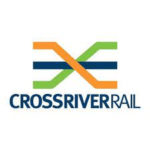
Hall
Keynote
2:15pm – 3:15pm
Building Capabilities for a Digital Future: Introduction to Python
Join us for an engaging hands-on introduction to text-based programming with Python. This workshop will allow you to learn first-hand what lessons with CS in Schools materials will look and feel like in your classroom. Claire and Jen will assist you to build your coding skills with your very own ‘Choose Your Own Adventure’! Working through the 6 core content lessons from our Introduction to Coding course, you will learn functions such as ‘if’ statements, loops, colours and style, strings, variables, and more! At CS in Schools, we are committed to supporting all schools with FREE materials and teacher professional development. We look forward to seeing you at QSITE!
Participant requirements: Laptop (preferred) or iPad, wifi access, latest web browser
Claire Andrewartha and Jen Ling
Bio: Claire Andrewartha is a passionate, lead teacher of Technology and Humanities with nearly 20 years in the classroom. Currently, the Program Manager at CS in Schools and she also holds the position of co-Vice President at Digital Learning Teaching Victoria (DLTV). Claire is committed to supporting teachers in up-skilling their digital capabilities and is dedicated to making meaningful connections between technology and all learning areas to maximise student learning outcomes.
Bio: Jen Ling, as the Industry and Stakeholder Manager of CS in Schools, and with a background in biology and biotechnology, Jen is passionate about driving change in STEM education. With many years of classroom teaching and experience as a Head of Digital Learning, Jen understands the needs of teachers and students within the classroom. In her role with CS in Schools, she is excited to offer free support to all Australian teachers and schools with their digital technologies classes.
Workshop A
Library
DT-7-10
2:15pm – 3:15pm
Create Your First Game with Unity
Discover how video games are made, and why this is a must-have skill for educators and students.
You’ll learn the basics of creating games with Unity, the tool used to make more than 50% of all games, including:
- How transferable skills are developed through game creation
- Getting started with the Unity engine (no coding experience required)
- The building blocks of a simple gameUnity in educational contexts
Participant requirements: Recommended but not required: a laptop with a mouse, and Unity installed. Unity can be downloaded for free at https://unity.com/download
Pablo Farias – Zenva Schools
Bio: Pablo is the Founder and CEO of Zenva – a leading education platform that helps schools and individuals upskill in coding, game creation and digital skills. He holds a Master in IT Management from the University of Queensland, and is a certified Unity Instructor and Unity Programmer.
Workshop B
Library
DT-7-10, DS-ICT, P-VET-IP
2:15pm – 4:15pm
Introduction to the VEX IQ Robotics System
VEX Robotics consists of multiple robotics platforms that meet the curriculum requirements of Prep through to Senior. In this workshop, we will have a hands-on introduction to the VEX IQ system, ideally aimed students from grades 5-10. The software can be configured for either Graphical or General Purpose programming and the robotics platform is flexible, to encourage creativity and problem solving with your students. We will go through the basics of getting the robot to move and interact with simple sensors.
**No prior experience is necessary**
Participants requirements: Participants will need to install the VEXCode IQ Software onto their laptops for the session.
https://www.vexrobotics.com/vexcode/install/iq
Damien Kee
Bio: Dr Damien Kee is an independent technology education expert, who specialises in bringing technology concepts to teachers and educators around the world. He works to educate teachers on the benefits and relative ease with which technology can be embedded into their daily classroom activities. With over 15 years experience, Damien can be found anywhere from sitting on the floor of a classroom, working with young students first learning the intricacies of programming, through to presenting at conferences to some of the most skilled educators in the field.
Workshop C
Library
DT-5-6, DT-7-10
2:00pm – 4:00pm
Taking your classroom robotics to international RoboRave robot competition
Join us to have a hand-on experience on how to implement challenges and activities in your robot classroom through a fun and engaging project.
Explore the relation between the robot hardware and the software that controls it by taking input data from peripherals sensors and processing it to create an output and interact with the environment. Design and develop a simple algorithm to meet design criteria using iteration and branching by comparing data collected from a peripheral sensor. You will work on creating autonomous car, and delivery service using block-based coding based on Scratch. You will explore different project activities including RoboRave Australia competition, Pet interaction, arcade, electric guitar, and more.
By the end of this workshop, you will build confident to work with your class on mBot Ranger Robotics Competition kit, teach them how to overcome problem, feel confident to support your classroom engagement in different projects.
Participant requirements: All equipment provided
Shira Gingell – STEM and robotics coach
Bio: Shira is co-founder of Out of the BOTS A local sunshine coast family business that provide robotic coaching, school holiday programs and professional development for educators. Shira has years of experience in the software engineering industry and a BA in Business Management and Computer Science – Systems and Application. Shira been involved in teaching robotics and coaching teams for RoboCup, RoboRAVE and First Lego League. Shira is part of the RoboCoast community that has trained thousands of staff and students, and part of the RoboRave Australia committee that bring engaging challenges competition opportunity to Australia.
Pathik Shah – DIY Explorer
Bio: Pathik, the founder-member of Pakronics®, is a post – graduate in micro -electronics system design and is responsible for scouting for the latest technology that could be utilised into the classrooms for Digital Technology. He has been instrumental in hand-picking STEM products to value-add to educators and customising kits to suit the unique needs of every classroom
Pathik has played an instrumental role in setting up partnership with Arduino Education, Makeblock, TinkerGen, Microbit and MicroMaker for delivering genuine STEM curriculum products and training for educators.
Workshop D
Library
DT-P-6
2:00pm – 3:00pm
KGSC Showcase and Share
In this presentation, Thea and Bianca will showcase and share the year 7 – 12 Digital Technologies/Digital Solutions and the year 9 – 12 ICT programs at Kelvin Grove State College.. Participants will walk away with sample unit plans, teaching sequences and assessment.
Participant requirements: Laptop if you want to access resources
Thea Koutsoukis and Bianca Pretorius
Bio: Thea Koutsoukis is a Digital Technologies and Mathematics teacher at Kelvin Grove State College. She has a bachelor of science in Artificial Intelligence and Computer Science, and worked as a software developer before becoming a teacher. Thea is passionate about getting girls interested in programming and her favourite languages are Python and Haskell.
Bio: Bianca Pretorius is a lifelong learner and teaches ICT and Digital Technologies at Kelvin Grove State College. Before pursuing a career in teaching, she completed a Bachelor of Industrial Engineering and a Master of Interaction Design. During her Masters, she started teaching robotics programs and hosted a Google CS4HS workshop on incorporating Design Thinking into the classroom, which sparked her passion for teaching technology.
Workshop E
Presentation
Hall
DT P-6, DT-7-10, DS-ICT
3:15pm – 4:15pm
Building Capabilities for a Digital Future: Introduction to Python
Join us for an engaging hands-on introduction to text-based programming with Python. This workshop will allow you to learn first-hand what lessons with CS in Schools materials will look and feel like in your classroom. Claire and Jen will assist you to build your coding skills with your very own ‘Choose Your Own Adventure’! Working through the 6 core content lessons from our Introduction to Coding course, you will learn functions such as ‘if’ statements, loops, colours and style, strings, variables, and more! At CS in Schools, we are committed to supporting all schools with FREE materials and teacher professional development. We look forward to seeing you at QSITE!
Participant requirements: Laptop (preferred) or iPad, wifi access, latest web browser
Claire Andrewartha and Jen Ling
Bio: Claire Andrewartha is a passionate, lead teacher of Technology and Humanities with nearly 20 years in the classroom. Currently, the Program Manager at CS in Schools and she also holds the position of co-Vice President at Digital Learning Teaching Victoria (DLTV). Claire is committed to supporting teachers in up-skilling their digital capabilities and is dedicated to making meaningful connections between technology and all learning areas to maximise student learning outcomes.
Bio: Jen Ling, as the Industry and Stakeholder Manager of CS in Schools, and with a background in biology and biotechnology, Jen is passionate about driving change in STEM education. With many years of classroom teaching and experience as a Head of Digital Learning, Jen understands the needs of teachers and students within the classroom. In her role with CS in Schools, she is excited to offer free support to all Australian teachers and schools with their digital technologies classes.
Workshop A
Library
DT-7-10
3:15pm – 4:15pm
Making Games with MakeCode Arcade
MakeCode Arcade (arcade.makecode.com) is a free online platform that enables students to learn coding in an interactive and engaging way using either blocks programming or a general-purpose programming language (subsets of JavaScript and Python). Using MakeCode Arcade, students design and code retro arcade games which can run in a browser or on a handheld console. Tutorial resources are available which support both students and teachers to learn to code.
In this workshop teachers will:
• be introduced to MakeCode Arcade with a brief overview of block programming
• interactively code a game using JavaScript
• interactively code a game using Python
• receive links to online resources which can be used in class
Who would benefit:
• Primary teachers can use MakeCode Arcade as an alternative to Scratch.
• Year 7 and 8 teachers can teach students to implement and modify programs with user interfaces involving branching, iteration and functions in a general-purpose programming language (ACTDIP030).
Participant requirements: Either their own laptop or desktop in computer lab
Jay Burmeister
Bio: Jay teaches teaches Technology and Physics at Townsville Grammar School. Before becoming a high school teacher, he lectured IT at the University of Queensland and at Griffith University. Jay is currently the Chair of the Townsville chapter of QSITE and delivers professional development to local teachers.
Workshop B
Library
DT-7-10
3:15pm – 4:15pm
A journey of Code and Community
A journey of Code and Community chronicles one teachers journey to develop a progressive and cohesive program across multiple skill and age levels. A program that reliably and consistently leads students from zero code knowledge, to competent programmer.
Along the journey, the tools and approaches employed are introduced so teachers are able to share in the works. Take what is useful with a good idea of the why and some direction for the how. The talk will cover the tools, but also the sequence and purpose of each tool. From Introductory Object Oriented event driven programming (GameFrame), through finite automata for AI (GF Capture the Flag) to SQL (MyQueryTutor) network communication/API’s (OurAPI) and expressing algorithms through PseudoCode (MyPseudocodeTutor).
Ultimately, audiences will be treated to a great love story. A story of a man and his machine, a timeless struggle to achieve coding glory. A story that spans a vast number caffeinated, sleepless nights spent hunched over his keyboard in the warm and loving glow of an LCD monitor. Of community interaction, consultation, and ultimately, of the true hero’s and heroines, the students whose passion was ignited into an unstoppable force – and the very nice mug they gave me 🙂
Steve Tucker
Bio: Steven is a Digital Technologies/Solutions teacher. He has developed a set of software tools specifically to address teaching and learning needs in computer programming. The software that Steven has developed includes GameFrame, GF Capture the Flag, MyQueryTutor, OurAPI and MyPseudocodeTutor, which are used widely across Queensland secondary schools
Steven has also worked as an Associate Lecturer teaching programming to ICT students as well as Mechanical and Electrical Engineers, from beginner python coding through to advanced parallel C programming on cluster computing systems. He has worked in industry developing Mobile, Desktop, Web and database systems as well as managing coding teams.
Workshop E
Presentation
Hall
DT-7-10, DS-ICT
6:00pm – 6:30pm
 Sponsored by Data #3 Drinks and networking for registered delegates at 66 on Ernest dinner venue.
Sponsored by Data #3 Drinks and networking for registered delegates at 66 on Ernest dinner venue.
Dinner begins at 6.30pm
Confirmation emails forwarded to those registered for dinner
66 on Ernest – refer email sent to all registered for dinner.
6:30pm – 9:30pm
Conference Dinner
66 on Ernest – refer email sent to all registered for dinner.
Day 2
Registration from 8:00am outside Hall
Tea/Coffee – BYO hot/cold drinking cup to help reduce the environmental impact.
8:50am – 9:00am
Welcome to Day 2
Hall
9:00am – 9:30am
Keynote speaker: Kimberly Valenny – Front End Developer at Deloitte Digital, ACS Emerging Professional
Kimberly is passionate about turning ideas into realities. She is motivated by emerging technologies and how she can contribute to the future of user experience design and software development as a Graduate Front End Developer at Deloitte Digital.
Kimberly has recently completed a double degree in Information Technology and Creative Industries at QUT, with majors in Computer Science and Interactive & Visual Design. She was also the 2021 President of Women in Technology, a student society that aims to unite, inspire and empower strong like-minded females studying all things tech at QUT.
Still eager to get involved in initiatives and networks, Kimberly is a member of the ACS QLD Emerging Professionals Committee and of the QUT IT Industry Advisory Group. She also tutors as a Sessional Academic at QUT for a first year ‘Introduction to Web Design’ unit and is an ambassador for the QUT Faculty of Science marketing team.
Hall
Keynote
9:30am – 10:00am
Keynote: Matthew Jorgensen – Project Manager, ACS ICT Gateway to Industry Schools Project
Bio: ‘The Australian Computer Society’s (ACS) ICT Gateway to Industry Schools project (ICT GISP) is an initiative of the Department of Employment, Small Business and Training (DESBT). ICT GISP schools collaborate with tech industry experts to help young people acquire the knowledge, skills and attributes to effectively participate in the Queensland economy. The program delivers a range of activities to assist students in making informed career choices and promote pathways to employment. Students gain valuable industry experience while still at school, providing them with the knowledge to make informed decisions about education and employment pathways.’ ‘Matthew Jorgensen is Program Manager for the ACS ICT Gateway to Industry Schools Program. He has been a Primary School Teacher, eLearning Integrator, Microsoft Innovative Educator Expert, Microsoft Teacher Ambassador and the Director of eLearning at a Gold Coast school. His main areas of interest have been Online Learning, Virtual Reality, Esports, 3D content creation and teaching Digital Technologies. He has previously been a member QSITE, where he was awarded Educator of the Year and Emerging Leader.’
Hall
Keynote
10:00am-10:30am
Sharon Singh – Chair, ACS ICT Educators Committee, ACS Representative to IFIP TC3
Bio: Sharon Singh is the Head of e-Learning and Innovation at St Johns Anglican College, Australia. An experienced educator and leader in IT and Computer Science for more than 20 years, she has worked in Fiji, Hong Kong, New Zealand, and South Korea. Her experience includes a senior project officer at Education QLD, an examiner for the International Baccalaureate Organisation (IBO); IB DP, MYP, and PYP; North American Advanced Placement (AP); Cambridge IGCSE; and the Australian Curriculum. With her passion for innovation, Sharon proactively provides thought leadership and commentary on Technology and Computer Science education for educators globally. She is the Australian Member Representative to the International Federation for Information Processing (IFIP) TC 3 (Education) and the Secretary to IFIP TC3 Executive Committee; the chair of the ACS MAB ICT Educators Committee; a board member of QSITE, and a CSIRO STEM professional. Sharon is a recipient of a 2021 Peter Doherty Excellence in Science, Technology, Engineering and Mathematics (STEM) Education award; a 2021 finalist for the Queensland College of Teachers TEACHX Innovation in Teaching Award, a 2019 ACS Gold Disruptor award for ICT Educator of the Year; and is a gold medallist of the University of the South Pacific (USP). She is a Queensland Justice of Peace (Qualified) and an international faculty for Haggai International. “
Hall
Keynote
10:30am – 10:50am
Morning Tea & Trade Show
Hall
10:55am – 11:55pm
Innovation and Contemporary Skills in a Primary School Context
Through my leadership of Digital Literacy and Design Thinking, five projects were completed that have given students a range of digital literacy capabilities. These projects included creating websites (Google Sites), Augmented Reality (AR MKR), iMovie, Toontastic and Beebots. At the beginning of the Term 2 Augmented Reality project, students were unfamiliar with the iPad application, AR MKR, at the completion of the project, 100% of students were confident in using the application and applying it to other key learning areas. It has been observed in digital literacy lessons, students in my class worked at a faster rate due to the increased digital literacy capabilities that they had acquired during the various projects. They have become accustomed to using technology, enhancing the digital capabilities of digital creation, digital collaboration and digital innovation while supporting their reading and literacy skills.
Key Takeaways:
1. Expose students early to technology and give them plenty of opportunity to experiment
2. Use various applications and an immersive strategy
3. Allow students to showcase their creations with each other and in wider contexts
4. Back what you are doing with research so you can prove what you are doing that it is evidence based and effective.
Participant requirements: Bring an iPad AR MKR app installed
Julie Taylor
Bio: Julie is a passionate Technology POD Leader who authentically integrates technology and innovation into daily school life. She applies her academic interests of Digital Pedagogy and Technology Integration into the classroom environment, facilitating Augmented Reality and website design projects with her Year 2 students. Julie has a strong background in Technology in Education having earnt her school the Becta ICT Mark while undertaking the role as Technology Leader in the UK and working as an Education Consultant during the roll out of Interactive Whiteboards to NSW DET schools and TAFEs. She has recently completed a Graduate Certificate (Innovative Learning Design) at QUT and is completing a Master of Education (Digital Technology) at CSU.
Workshop A
Library
DL, DT-P-6
10:55am – 12:55pm
Demystifying Arduinos: Simple Arduino Classroom Activities
The Arduino platform is a fun and engaging way to introduce Digital Electronics to your classroom. With simple component and fun activities, students can quickly create a variety of projects utilising multiple Inputs and Outputs. The software is easy to pick up, and the solderless prototyping boards are great for quickly trying out different hardware configurations.
Participants in the workshop will learn how to use the Arduino platform to make LED’s blink, wire up buttons and create motion with Servo motors. Simple projects will be demonstrated that teachers can immediately implement back in their classroom.
**No Prior Experience is necessary!**
Participant requirements: Laptop with Arduino software installed. Spare laptops will be available if necessary.
Damien Kee
Bio: Dr Damien Kee is an independent technology education expert, who specialises in bringing technology concepts to teachers and educators around the world. He works to educate teachers on the benefits and relative ease with which technology can be embedded into their daily classroom activities. With over 15 years experience, Damien can be found anywhere from sitting on the floor of a classroom, working with young students first learning the intricacies of programming, through to presenting at conferences to some of the most skilled educators in the field.
Workshop B
Library
DT-7-10
10:55am-12:55pm
PHP/MySQL for Digital Solutions IA2 and IA3
Digital Solutions IA2 and IA3 can be completed in a number of ways using a variety of programming languages. This workshop work through the skills students and teachers would need to do IA2 and IA3 in the web applications context using PHP and MySQL. Participants will code a web based component of a digital solution in PHP that connects to a MySQL database to retrieve and insert data, and another web based component that connects to an online API returning JSON and XML to programmatically transform data from one form into another. No prior knowledge of PHP and MySQL is required but a basic understanding of the syntax of C-family programming languages and simple HTML would be advantageous. The workshop will also have a discussion of the requirements of IA2 and IA3 and strategies to ensure students cover these requirements.
Participant requirements: Internet connected laptop or tablet with keyboard, no software required other than a browser.
Richard Kelly
Bio: Richard Kelly has been teaching IPT and Digital Solutions for 20 years in Education Queensland schools. He is Head of Department Digital Technologies and eLearning at Toowoomba State High School and the QSITE Toowoomba chapter chair. Richard has a passion for coding and has used PHP and MySQL with his students for over 15 years. He authored the website Digital Solutions Online (previously known as IPT Online). Richard won the QSITE Emerging Leader of the Year award in 2007 and the Outstanding Leader of the Year award in 2019.
Workshop C
Library
DS-ICT
10:55am-12:55pm
Python game design on PyGamer for Digital Technologies V9 curriculum
With Adafruit PyGamer, an affordable handheld gaming device, you can engage your students in a fun and exciting way using textual language Python with a highly engaging way that meet the V9 of the Australian curriculum for digital technologies.
Join us to have a hand-on experience on creating your first game. Explore the Adafruit PyGamer hardware and capabilities. Learn step by step and gain confidence with Python syntax by using the Adafruit CircuitPython on the PyGamer. Design the game and user experiences to generate a set of requirements. Understanding how the game story transfer to algorithm and how to divide to small tasks that can complete separately. Understanding program structure using branching, looping, functions and object-oriented.
The Adafruit Pygamer – hardware will be provided during workshop to explore your own journey in game making with Python. Prior knowledge in Python is not required to join us.
Participant requirements: Equipment provided
Shira Gingell – STEM and robotics coach
Bio: Shira is co-founder of Out of the BOTS A local sunshine coast family business that provide robotic coaching, school holiday programs and professional development for educators. Shira has years of experience in the software engineering industry and a BA in Business Management and Computer Science – Systems and Application. Shira been involved in teaching robotics and coaching teams for RoboCup, RoboRAVE and First Lego League. Shira is part of the RoboCoast community that has trained thousands of staff and students, and part of the RoboRAVE Australia committee that bring engaging challenges competition opportunity to Australia.
Pathik Shah – DIY Explorer
Bio: Pathik, the founder-member of Pakronics®, is a post – graduate in micro -electronics system design and is responsible for scouting for the latest technology that could be utilised into the classrooms for Digital Technology. He has been instrumental in hand-picking STEM products to value-add to educators and customising kits to suit the unique needs of every classroom
Pathik has played an instrumental role in setting up partnership with Arduino Education, Makeblock, TinkerGen, Microbit and MicroMaker for delivering genuine STEM curriculum products and training for educators.
Workshop D
Library
DT-7-10
10:55am-11:55pm
Bridging the Gender Gap: How to encourage girls to study technology in secondary
This Session is based on solid research and provides practical actions that can help with encouraging more girls to choose technology as their option subjects in years 8 – 10 and hopefully choosing it in Senior and Further Education. She will enlighten us with research, into the 9 factors associated with girls’ decision making process and how they differ to their male counterparts. Her suggested adjustments are small but effective and the best thing it does not require whole rewrites of curriculum nor lesson materials. She looks at unconscious biases in the classroom and by taking a lens to such biases, we will all have a greater appreciation of the little things that make a big difference.
Cynthia Nolan
Bio: As one of the first females to graduate from university in Computing in 1996, Cynthia has always been passionate about encouraging girls into the Computing industry. Her 25-year career has allowed her to work within the Computing industry and then to retrain as a teacher, bringing both a real-world and academic approach to teaching and learning. She has a Masters from the University of London in Organisational Psychology – specialising on how Engineers make sense of emotions in their working environment. Having spent 22 years in the UK, Cynthia more recently has been in Education Consultancy – STEM leadership roles encouraging girls to study Technology based subjects in their teenage (middle school) years.
Workshop E
Presentation
Hall
DT-7-10, DS-ICT
11:55am-12:55pm
Redefine, Reimagine, Relearn with Datacom A transformational journey for teachers and schools
As a major employer in the ICT industry in Australia and New Zealand, Datacom understands the importance of equipping students with the skills required for the tomorrow they will embrace. The Education Innovation Practice provides expertise and support to schools driven by our guiding principles; a focus on learning, to reimagine teaching and leverage technology. We have created a methodology based on Australian research and government policy that aligns with AITSL requirements, the SAMR digital learning Framework, and Version 9 of ACARA. The Datacom Education Innovation Practice shares the building blocks used to leverage technology to develop teaching that gives students the skills for lifelong learning. This targeted three-year program allows for measurable outcomes through a 7-part methodology, developed by Datacom, based on published research on the importance of supporting teachers to gain effective outcomes in the classroom. Join me to explore the implications of aligning industry and education through teacher support and professional development.
Participants requirements: laptops and access to Google Jamboard
Juliette Bentley – Datacom
Bio: Juliette has worked in the education industry for the past 33 years in various roles including Technology Implementation Mentor and Classroom Teacher, author and presenter, coordinator with global writing communities, and more recently as a Leader in Global Projects with The Asia-Europe Foundation. She received her Masters of Education Information Learning Connections from QUT. Juliette has an interest in educational transformation, building global writing communities and leveraging technology to advocate and take action for the Sustainable Development Goals.
Workshop A
Library
DL, DT-P-6, DT-7-10, DS-ICT
11:55am-12:55pm
Kelvin Grove State College Healing Barrambin – Barrambin Farm (Smart Vertical Garden Project)
Through storytelling and showing, Jodie O’Sullivan, Jimmy Southwood and Sue Isbell from Kelvin Grove State College will share the vision and progress of the College Healing Barrambin project, with a focus on the new Barrambin (urban vertical) Farm and digital technologies and artefacts being utilised now and planned for the future.
Jodie Sullivan
Jimmy Southwood
Sue Isbell
Workshop E
Presentation
Hall
DT-7-10
12:55pm – 1:25pm
Lunch & trade show
Hall
1:30pm – 2:30pm
Unpacking ACS Educator Community
Connect with Catherine and learn how ACS is supporting schools around Australia to implement the Digital Technologies Curriculum. She will take you through the resources which includes resources to unpack curriculum concepts and units of work to teach the F-10 curriculum. Learn how she creates lesson plans and scope and sequences and walk away with access to over 150 resources, ready to be used straight away in your classes.
Participant requirements: Laptop/digital device.
Catherine Newington – ACS
Bio: Catherine Newington is the ACS ICT Educator Specialist. She leads the ACS ICT Educators national program to support schools to implement the Digital Technologies Curriculum. Lessons promote skills such as authentic learning, critical and creative thinking, student driven learning. Catherine is a registered teacher with over 12 years’ experience. She holds a postgraduate degree specialising in Education Technologies.
Workshop A
Library
DT-P-6, DT-7-10
1:30pm – 2:30pm
CREATE, CODE, INNOVATE with LEGO Learning System
Accelerate STEM learning across your school with a Robotics solution for all levels from LEGO Education. Explore the lessons and the design challenges that will engage your students to think critically and collaborate to create simple to complex robotic solutions with real world relevance.
LEGO Education SPIKE Prime for middle years and SPIKE Essential for early years, builds confidence in teachers and students to code with a progression from icon to Scratch based block programming through to text-based coding with Micro Python.
In this presentation you will discover the NEW LEGO Learning system that develops your students coding and STEM skills today to be the innovators of tomorrow. Take away a sample set and lesson to continue the learning.
Libby Moore – Moore Educational
Bio: Libby Moore was a teacher for 15 years before establishing Moore Educational to continue her passion for STEM learning. As a partner of LEGO Education for 25 years, Libby is the director of Moore Educational, engaging students and teachers in STEM learning experiences that combine LEGO Education resources, relevant digital technologies and curriculum.
Workshop B
Library
DT-P-6, DT-7-10
1:30pm – 2:30pm
User Interfaces in Python using PySimpleGUI
Want to make GUIs with Python without having to set up a web application or wrangle with tkinter?
Come and get some hands on experience with the Python library PySimpleGUI – a package for making simple user interfaces suitable for Year 9 – 10 Digital Technologies or Digital Solutions classes.
In this workshop we will look at example projects, assessment and links to curriculum. Participants will learn how to install the library and program the user interface and the event loop. Knowledge of Python (functions, dictionaries, tuples, if/else statements, while loops) preferable!
Participant requirements: Laptop, software installed.
Thea Koutsoukis
Bio: Thea Koutsoukis is a Digital Technologies and Mathematics teacher at Kelvin Grove State College. She has a bachelor of science in Artificial Intelligence and Computer Science, and worked as a software developer before becoming a teacher. Thea is passionate about getting girls interested in programming and her favourite languages are Python and Haskell.
Workshop C
Library
DT-7-10, DS-ICT
1:30pm – 3:30pm
Robotics programming using Blocks with Micromelon
In this hands-on workshop, using the Micromelon Rover, we will guide you through a series of engaging and real-world activities and challenges that you can immediately incorporate into your robotics lessons or after school club, some without even using robots. You’ll be able to code along without a robot using the Micromelon Robot Simulator, Blockly to program a virtual robot of your own.
Along the way, we will share how each activity can be modified and extended to cater to students of all levels in your classroom.
By the end of the session you will:
- Be able to incorporate virtual and simulated robotics into your STEM and Robotics lessons.
- Be able to use the Micromelon IDE to write programs for both real and simulated Rovers.
- Understand and have practical experience coding using Block programming.
- Be able to confidently guide students through a number of workshops and activities from our online library of resources.
- Have insights on how each activity can be structured to meet the needs of all of your students.
Provided by ACS ICT Gateway To Industry Schools Program.
Participant requirements: Laptops preferred
Tim Hadwen and Adam Stacey – Micromelon
Bio: Tim Hadwen – Tim’s background is in electronics design, both for startups and as a researcher with the CSIRO. Since co-founding Micromelon, Tim has been the lead hardware engineer developing the Micromelon Rover as well as 3D printed attachments and resources go alongside the Micromelon Platform in schools. Tim also facilitates many of Micromelon’s student workshops as well as adult robotics sessions and networking events.
Bio: Adam Stacey – Adam’s background includes being a computer vision researcher and mentoring several honors software engineering students in their final year. Since co-founding Micromelon, Adam has worked as the lead software engineer developing the Micromelon Code Editor & Robot Simulator. When not adding new features to the Simulator, Adam spends time in schools mentoring students who want to pursue a career in software engineering.
Workshop D
Library
DT-P-6
1:30pm – 2:30pm
Privacy and security in Version 9.0 of the Australian Curriculum Years 7-10
Privacy and security has been added as a new sub-strand in Version 9.0 of the Australian Curriculum: Digital Technologies. The sub-strand outlines understandings that are important for students to develop as they engage in the contemporary, digital world. Students develop techniques to protect their personal data, manage their digital footprints and effectively implement security protocols.
Participants of this session will have the opportunity to:
- Better understand the structure and intent of the Privacy and security sub-strand
- Recognise the progression of content as viewed through the content descriptions and achievement standards of Years 7-10
- Identify points of entry for teaching these concepts using the content elaborations
- Explore related content within the three-dimensions of the Australian Curriculum
- Recognise resources that are available to support professional development for the sub-strand content
Taylor Donnelly (QCAA)
Bio: Taylor Donnelly is a Principal Project Officer (Australian Curriculum: Technologies) with the Queensland Curriculum and Assessment Authority (QCAA). Over the past few years, her roles have allowed her to provide professional development for both the Technologies curriculum, and for implementing digital tools into learning experiences. Taylor has school experience as a Digital Technologies specialist teacher, STEM mentor, and classroom teacher in a primary context.
Workshop E
Presentation
Hall
DT-7-10
2:30pm – 3:30pm
Hands On micro:bit Session
A dedicated session to utilising the micro:bit in your digital technologies classes. Play and explore the potentials of the micro:bit. Be provided with units of work and resources to help you unpack the micro:bit or give you a fresh perspective on how to use them in your classes. No prior knowledge or experience required.
Participant requirements: Laptop that will connect the micro:bit (USB or USB adaptor).
Catherine Newington – ACS
Bio: Catherine Newington is the ACS ICT Educator Specialist. She leads the ACS ICT Educators national program to support schools to implement the Digital Technologies Curriculum. Lessons promote skills such as authentic learning, critical and creative thinking, student driven learning. Catherine is a registered teacher with over 12 years’ experience. She holds a postgraduate degree specialising in Education Technologies.
Workshop A
Library
DT-3-6, DT-7-8
2:30pm – 3:30pm
Code Clubs in your school and classroom
The Digital Technologies classroom is an exciting space to engage our students in creating digital solutions that address real life problems in their world. By encouraging our students to be creators, rather than consumers of technology, we are developing them as both life long learners and activity citizens of the future.
Participants will
* Explore how to turn their classroom into a Code Club, or develop a lunch time one
* Engage in hands on coding activities in a choice of coding languages
* Explore how a Code Club supports higher engagement of girls in coding
* Use coding projects to provide differentiation to students
* Use Uncle Ernie’s Framework and 8 Ways of Aboriginal Learning to embed First Nation’s Perspectives in digital technologies
* Engage in adapting resources to develop localised digital solutions with integrity
Participant requirements: Laptop or iPad/tablet
Kaye North
Bio: Kaye is an experienced Queensland teacher who has worked in both primary and high schools, as well as being the STEM Champion in the North Coast Region for a number of years. Kaye’s passion lies in supporting teachers to have depth in their curriculum knowledge, to enable the planning and delivery of exciting and engaging units of work that are relevant in a student’s world.
Workshop B
Library
DL, DT-P-6
2:30pm – 3:30pm
Applied ICT Syllabus – Draft 2 Feedback
Sue Isbell and Richard Kelly
Workshop C
Library
DS-ICT
2:30pm – 3:30pm
Digital Technologies in 2022, where are we at?
An overview of computer education in Australian schools in 2022 as informed by the Australian Computer Society study and 2022 report.
Participant requirement: Mobile device with internet connectivity for full participation
Dr Jason Zagami – Senior Lecturer at Griffith University
Bio: Jason is an Academic in computer education at Griffith University, past president of QSITE and ACCE, and current chapter chair of QSITE Gold Coast.
Workshop E
Presentation
Hall
DT-P-6, DT-7-10, DS-ICT
3:30pm – 4:30pm
Working in Tech; Insights from Industry for Education
Panel: Host is Matthew Jorgensen, Project Manager, ACS ICT Gateway to industry Schools project
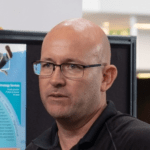 ‘The Australian Computer Society’s (ACS) ICT Gateway to Industry Schools project (ICT GISP) is an initiative of the Department of Employment, Small Business and Training (DESBT). ICT GISP schools collaborate with tech industry experts to help young people acquire the knowledge, skills and attributes to effectively participate in the Queensland economy. The program delivers a range of activities to assist students in making informed career choices and promote pathways to employment. Students gain valuable industry experience while still at school, providing them with the knowledge to make informed decisions about education and employment pathways.’
‘The Australian Computer Society’s (ACS) ICT Gateway to Industry Schools project (ICT GISP) is an initiative of the Department of Employment, Small Business and Training (DESBT). ICT GISP schools collaborate with tech industry experts to help young people acquire the knowledge, skills and attributes to effectively participate in the Queensland economy. The program delivers a range of activities to assist students in making informed career choices and promote pathways to employment. Students gain valuable industry experience while still at school, providing them with the knowledge to make informed decisions about education and employment pathways.’
‘Matthew Jorgensen is Program Manager for the ACS ICT Gateway to Industry Schools Program. He has been a Primary School Teacher, eLearning Integrator, Microsoft Innovative Educator Expert ,Microsoft Teacher Ambassador and the Director of eLearning at a Gold Coast school. His main areas of interest have been Online Learning, Virtual Reality, Esports, 3D content creation and teaching Digital Technologies. He has previously been a member QSITE, where he was awarded Educator of the Year and Emerging Leader.’

Scott Norrish, CyberCX, Regional Director, Cyber Security and Cloud Transformation
Scott is an organisational leader who takes a human-centred approach to client service. He leads his team by encouraging a culture of creativity, exploration and experimentation to draw out innovative products, solutions, services and experiences. Scott has over 25 years of technology industry experience, working through a landscape of emerging technologies and markets, and creating and presenting future visions and narratives for both CyberCX and his customers. He is focused on how customer experience (CX) directly impacts every element of business growth.
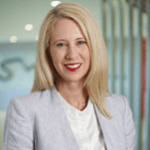 Rene Plamenac – Innovation Lead at BDO, Industry Mentor at Tech Girls Movement Foundation
Rene Plamenac – Innovation Lead at BDO, Industry Mentor at Tech Girls Movement Foundation
Rene Plamenac is the National Innovation Lead for BDO in Australia.
Rene has over 20 years of experience in the disciplines of information technology, and finance and has a diverse background across the business and professional services arena. Rene is a high-performing innovation and digital technology leader with expertise in building, optimising, and transforming organisational processes to maximise business value through implementation of innovative solutions.
Prior to joining BDO Rene served in several business leadership roles across Australia and the UK and has experience leading large scale international IT delivery programs across Australia, New Zealand, India, and the Philippines.
Outside of BDO Rene has a specific interest in raising awareness of issues facing women in technology and is interested in encouraging the next generation of female technology leaders by battling gender biased stereotypes through grass roots mentoring programs and engagements.
 Jackson Miller – CEO vybu, Master of Science by Research at Bond University, ACS Emerging Professional
Jackson Miller – CEO vybu, Master of Science by Research at Bond University, ACS Emerging Professional
Jackson is currently CEO of mental health tech start-up ‘vybu’ which has attracted global engagement through its use of audio recordings to activate meaningful expression amongst loved ones and preventatively address the strikingly high prevalence of mental ill-health. While leading vybu, Jackson is completing his Master of Science by Research at Bond University and working as a Program Development Officer at Action on Poverty, Head of Operations for ‘ALTRU’ (an NFP striving to address homelessness) and Digital Operations Manager for ‘BounceBack’ (a sports-sustainability start-up). He serves on both the Emerging Professionals & Gold Coast Chapter committees of the Australian Computer Society (ACS) and holds ambassadorships through University across wellness and entrepreneurship. Having recently completed fellowships with ‘Tech for Social Good’, founded and led sporting organisations, travelled as a professional musician and co-ordinated crisis relief efforts. Jackson is particularly drawn toward tech because of its power to significantly multiply positive impact – as is his personal mission.
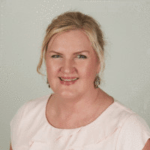 Bron McCLain – Director, Capability at Queensland Government Customer and Digital Group
Bron McCLain – Director, Capability at Queensland Government Customer and Digital Group
Bron is leading the delivery of the Queensland Government’s Digital Professional Workforce Action Plan 2020-2024. The DPWP is part of the $200 million Future Skills Fund and with an $8 million investment, to boost the number of Queenslanders skilling and re-skilling to meet the demand by industry for digitally skilled workers.
Bron has worked at senior levels in multiple Queensland Government agencies in communications, media, engagement and program delivery. Through Bron’s program management and implementation of the Queensland Government’s DPWP, her team is forging effective partnerships and initiatives with industry, academia, tech industry leaders and regional organisations.
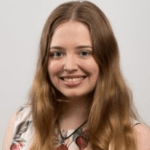 Alison Collins – Game Designer, Halfbrick
Alison Collins – Game Designer, Halfbrick
Alison is a game designer at mobile game development studio Halfbrick. Her unique skillsets were fostered through a dual degree in Information Technology (User Experience Design) and History which inspired her to design an award-winning historical board game that launched her career in game design.
In 2021, she was accepted into the Halfbrick Graduate Bootcamp program, a six-month training and mentoring initiative for new graduates to develop their game design and programming experience while working at the company. As a game designer at Halfbrick, she works in a fully remote studio environment with an international team to develop mobile games.
Alison was a popular guest speaker at the recent ACS Foundation BiG Day In held at UQ in April 2022. She shared her experience in the game dev industry. This included joining Halfbrick through a Graduate Bootcamp in October 2021. At Halfbrick, there is a strategy of hiring and developing graduates like Alison.
Hall
Industry Panel
4:30pm
Conclusion of Conference
Prize draws – Must be present to be a winner
